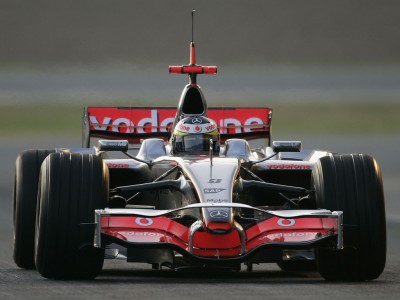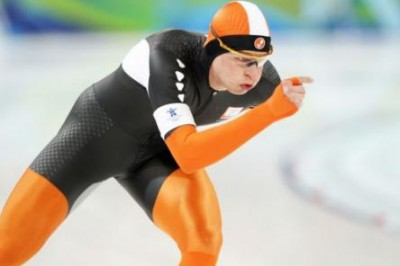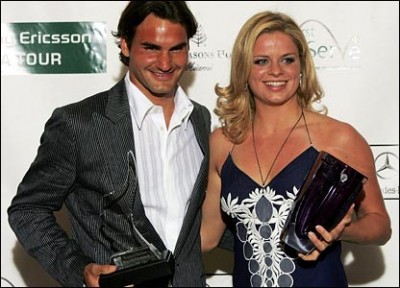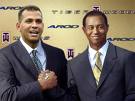This week the Dutch National Olympic Committee will present a focus list of 10 sports that could help the Netherlands in realizing its ambition to structurally end in the top 10 of the Olympics medal table. This is one of the requirements for hosting the Olympic Games. Our analysis shows the 10 sports which will make the focus list and which hence may receive extra funding are likely to be the following ones: skating, aquatics, athletics, rowing, judo, field hockey, cycling, sailing, equestrian and gymnastics.
On 30 august the Dutch National Olympic Committee (NOC NSF) will present its “study top 10”. This study should give insight in the present top sports climate in The Netherlands and its future ambitions. In order to fulfill its objective to host the Olympics in 2028, one of the ambitions of the NOC NSF is to structurally end in the medals top 10 of Olympic Games. The top 10 should be seen in this perspective; it consists of those sports that have a decent chance to realize this ambition. Clearly these sports should qualify for extra financial support.
The Netherlands has only once been in the Olympics medal top 10 table. Let’s first briefly examine how The Netherlands has performed during the Olympics in the last 7 editions and simultaneously how many gold medals were required to end up in the medal top 10.
| Olympics | Dutch gold | Medal Ranking | Medals required |
| medals | to be in top 10 | ||
| 2008 | 7 | 12 | 7 |
| 2004 | 9 | 17 | 9 |
| 2000 | 11 | 8 | 11 |
| 1996 | 7 | 15 | 7 |
| 1992 | 7 | 20 | 7 |
| 1988 | 6 | 22 | 6 |
| 1984 | 6 | 13 | 6 |
From this table the following conclusions can be drawn:
- The Netherlands has only once been able to end in the top 10; this was during the tremendously successful Sydney 2000 Games.
- The Netherlands usually is ending in the top 20 in the Olympics medal table
- In order to realize a top 10 position around 7 gold medals are required. Only during the 2000 and 2004 editions this number was exceeded
- In order to structurally end up in the medals top 10 The Netherlands needs more gold medals.
Choices have to be made. Not surprisingly more money is required to stand a chance to realize this ambition. Besides a better sports infrastructure, better facilitation and better support of top athletes, it is clear that choices have to be made as far as sports are concerned. One would invest in those sports where chances of gold medals are the best. The 80/20 rule also applies to sports and it is no different from your average company, where just a few clients (20%) make up 80% of the turnover. As we will see, it ain’t that different in sports; a few sports are accounting for the vast majority of medals. It doesn’t require rocket science to determine which sports these are. We have used 3 criteria to pinpoint where The Netherlands would have a decent chance to gain gold medals.
- How many gold medals per sports discipline are at stake during the Olympics? Clearly this makes a difference; are we going to invest in athletics, where 47 medals are to be gained or say in triathlon with only 2 gold medals to be divided.
- Do we have sufficient talent available in those sports to support our ambitions? In order to measure this, we have looked at the size (in terms of members) of each sports federation that could be active on the games
- In which sports do we have a historic tradition as far as medals are concerned? In several Olympic sports, we have barely won any medals at all. For example The Netherlands does not have a tradition in wrestling, where it has never gained any medals (also reflected in the number of members at the wrestling union). It should therefore be questionable whether such tradition can be reversed quickly, particularly given the available resources of such sports.
In the table below we have listed the different Olympic sports in accordance with the criteria mentioned above.
| Sports | Gold medals | Sports | Members | Sports | Medals NL | |
| 1 | Athletics | 47 | Football | 1152674 | Aquatics | 55 |
| 2 | Aquatics | 46 | Tennis | 693024 | Cycling | 40 |
| 3 | Cycling | 18 | Gymnastics | 273811 | Rowing | 26 |
| 4 | Gymnastics | 18 | Field hockey | 210498 | Equestrian | 22 |
| 5 | Wrestling | 18 | Equestrian | 203007 | Judo | 20 |
| 6 | Canoeing | 16 | Aquatics | 144259 | Sailing | 18 |
| 7 | Shooting | 15 | Athletics | 127639 | Athletics | 15 |
| 8 | Weightlifting | 15 | Volleyball | 127047 | Field hockey | 14 |
| 9 | Judo | 14 | Sailing | 101040 | Canoeing | 8 |
| 10 | Rowing | 14 | Badminton | 61321 | Boxing | 6 |
| 11 | Boxing | 13 | Judo | 57686 | Fencing | 5 |
| 12 | Fencing | 10 | Handball | 57192 | Weightlifting | 3 |
| 13 | Sailing | 10 | Basketball | 42134 | Football | 3 |
| 14 | Taekwondo | 8 | Shooting | 41882 | Shooting | 2 |
| 15 | Equestrian | 6 | Table tennis | 34288 | Tennis | 2 |
| 16 | Badminton | 5 | Cycling | 28456 | Volleyball | 2 |
| 17 | Tennis | 5 | Rowing | 28092 | Archery | 2 |
| 18 | Volleyball | 4 | Triathlon | 14019 | Gymnastics | 1 |
| 19 | Archery | 4 | Archery | 10071 | Badminton | 1 |
| 20 | Table tennis | 4 | Taekwondo | 8574 | Wrestling | 0 |
| 21 | Basketball | 2 | Canoeing | 6938 | Taekwondo | 0 |
| 22 | Field hockey | 2 | Wrestling | 4096 | Table tennis | 0 |
| 23 | Football | 2 | Fencing | 2539 | Basketball | 0 |
| 24 | Handball | 2 | Boxing | 1497 | Handball | 0 |
| 25 | Modern Pentathlon | 2 | Modern Pentathlon | 415 | Modern Pentathlon | 0 |
| 26 | Triathlon | 2 | Weightlifting | – – | Triathlon | 0 |
5 out of 26 different sports account for 50% of the medals. There are 302 gold medals to be handed out at the next Olympics in London split over 26 different sports and even more disciplines. Important to realize is that 5 of these sports account for approximately 50% of all the medals, coincidentally wrestling being one of these sports. The 10 sports with the least gold medals to be gained account for only 10% of all the medals. Hence, this explains why focusing is important. Looking at the total members per union, it is clear where the Netherlands has the biggest resources as far as talent, trainers and tradition is concerned and not surprisingly this is also reflected in the column detailing the total number of medals that historically have been gained in a certain sport.
The top 10 focus list. Taking these criteria as a yardstick it is not difficult to arrive at a focus list (or a study top 10 as NOC NSF is defining it). Apart from skating (we have not analyzed the Winter Olympics for obvious reasons – the vast majority of Dutch gold medals are gained in skating -), we would arrive at the following sports: athletics, aquatics, cycling, judo, rowing, sailing, equestrian and field hockey. It means there is one sports left. As football and tennis are played on a full-time professional level and not primarily dependent on NOC NSF, we would not expect these sports to be on the list. Given both the number of medals at stake and the number of people participating in the sports, we believe gymnastics would be a prime candidate to end the list.

 Whereas at the beginning of the Winter Games Sven Kramer of The Netherlands was widely seen to become the athlete winning the most gold medals, he did not manage to indeed become the king of the Games, mainly due to an unintended mistake of his coach. Local marketing buffs claim this mistake could turn out to be extremely expensive, costing him millions of dollars. I doubt whether this will be true; although his claim to international fame has not materialised to the extent he would have hoped, this should be more than compensated by his increased popularity at home, where he found a whole new bunch of supporters admiring him for the way he dealt with this issue.
Whereas at the beginning of the Winter Games Sven Kramer of The Netherlands was widely seen to become the athlete winning the most gold medals, he did not manage to indeed become the king of the Games, mainly due to an unintended mistake of his coach. Local marketing buffs claim this mistake could turn out to be extremely expensive, costing him millions of dollars. I doubt whether this will be true; although his claim to international fame has not materialised to the extent he would have hoped, this should be more than compensated by his increased popularity at home, where he found a whole new bunch of supporters admiring him for the way he dealt with this issue. We have almost finished 2009 and have witnessed an eventful sporting year on and off the pitch. Who cannot remember the win of the Steelers against the Cardinals in the superbowl or the stunning race of Usain Bolt in which he broke the 100 metres world record by a mile, or Tiger’s great comeback after his injury (although he didn’t manage to win a major and did take a sidestep at the end of the year), or Roger Federer breaking Pete Sampras’ grand slam record. In spite of all of this 2010 should be a much more eventful sporting year given bonus events such as the Winter Olympics and the World Championships of Football. We briefly discuss the 10 biggest sports events to look forward to.
We have almost finished 2009 and have witnessed an eventful sporting year on and off the pitch. Who cannot remember the win of the Steelers against the Cardinals in the superbowl or the stunning race of Usain Bolt in which he broke the 100 metres world record by a mile, or Tiger’s great comeback after his injury (although he didn’t manage to win a major and did take a sidestep at the end of the year), or Roger Federer breaking Pete Sampras’ grand slam record. In spite of all of this 2010 should be a much more eventful sporting year given bonus events such as the Winter Olympics and the World Championships of Football. We briefly discuss the 10 biggest sports events to look forward to. 2010 is nearing the end and hence lists of names are popping-up everywhere summarizing the greatest moments, sportsmen, sportswomen etc. Clearly we are not staying behind and add our own list. As 2010 has seen many confessions of big (former) stars, we briefly stand still to look at the 10 biggest confessions in sports in 2010.
2010 is nearing the end and hence lists of names are popping-up everywhere summarizing the greatest moments, sportsmen, sportswomen etc. Clearly we are not staying behind and add our own list. As 2010 has seen many confessions of big (former) stars, we briefly stand still to look at the 10 biggest confessions in sports in 2010.